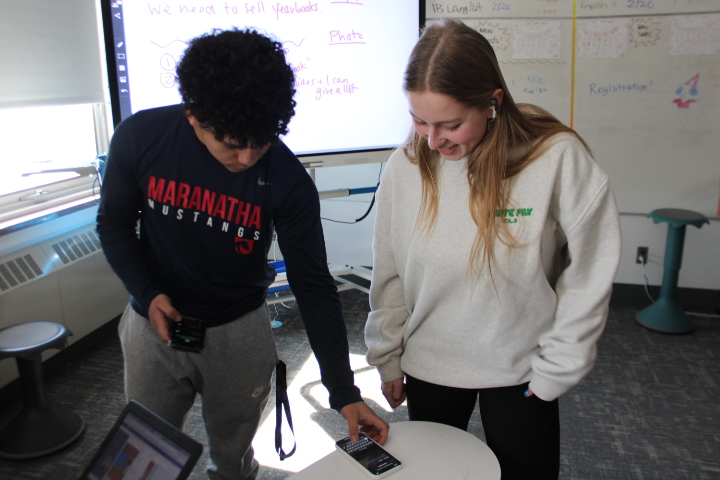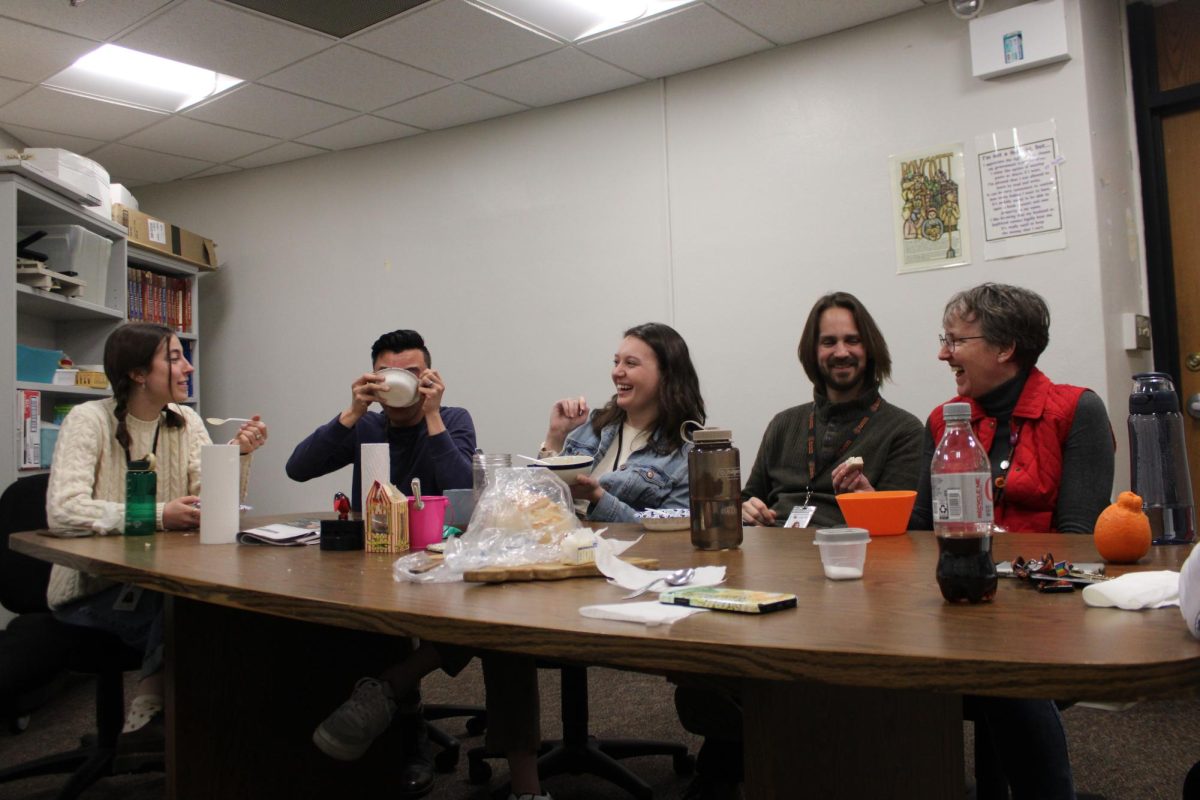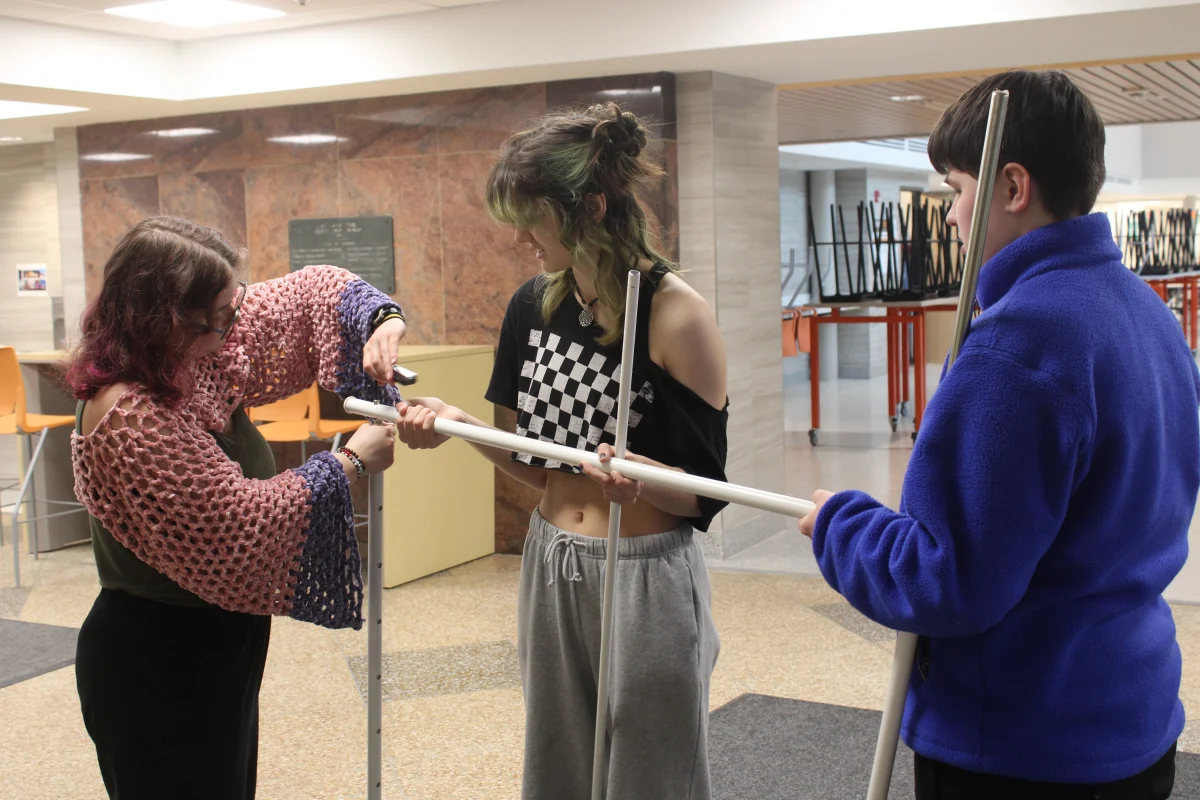Most students spend their junior year in anticipation for the ACT test. People adapt different study methods and practices to help them achieve the best possible score. They are given a substantial amount of time to prepare, however, it almost never feels like enough for most and plenty of people end up taking it more than once.
Junior Sylvia Tolzin said taking the test more than once was helpful because it gave her more knowledge on expectations for the test, as well as ways in which she wanted to prepare. She found that getting a tutor was beneficial for her.
“The first time I kinda went into it without any preparation so when I got there I was like, oh my goodness I am not ready for this. I didn’t really know how long I should take on each question, or even the categories of questions that would be asked of me,” Tolzin said. “This past test, I got a tutor and that helped me understand more of what’s on the test and more of what I should prepare to know.”
Senior Tony Kruse said his retake of the ACT test lowered his nerves because he knew the format of the test and had more test experience. Leading him to feeling less stressed because he had higher belief in his capability to take the ACT.
“(My confidence level) changed a lot because the nerves went away, and I knew how to take it (the ACT) and how to manage my time,” Kruse said. “I think that you have the ability to do it (take the ACT), so don’t stress about it too much and what happens, happens.”
According to junior counselor Heidi Cosgrove, the ACT can affect students, and what they think about themselves, retaking the ACT gives students more confidence to improve on their scores.
“ACT can be really hard on students and how they feel about themselves. I’m super cautious and super protective of, this is a test, just one snapshot in time of how you’re doing,” Cosgrove said. “If students thought about it like, ‘okay my first time I was trying to get a feel for it, and now I kind of know what to expect. I’m feeling a little bit more confident with it.’”
The ACT test impacts each student differently. Tolzin said for her case, she isn’t worried about the admissions aspect of the test because most of her desired schools are test-optional. However, she wants a high ACT score because she believes it will correlate to a higher chance of financial aid.
“For me, most of the schools I want to apply to are test optional, but scholarships are very important to me so I’m able to go into college and pursue that education,” Tolzin said. “I’m trying to get a good ACT score so I can apply to those scholarships and have a more likely chance of getting them, and have that financial aid. (my score) is less about admission and more about financials for me.”
Kruse said he was happy he took the test again because the increase in his score was worth the retake. Similar to Tolzin, he mainly took the test to apply for financial scholarships and reach for more schools.
“I think the increase in my score was worth it (the retake), and it improved a decent amount because I was more experienced with the test. Overall though, it (test score) wasn’t that important for me because I only submitted it to a couple schools, so it wasn’t a big deal,” Kruse said. “I retook the test because I wanted to get a better score for merit scholarship reasons and getting into more schools.”
A positive coming from the ACT testing experience is, if you happen to take it more than once colleges will look at the best overall score. Cosgrove said colleges don’t search for a person’s weaknesses, and taking the test a second time is a good option for students who want to broaden their potential college options.
“Typically, juniors are just starting to think about colleges, and they’re starting to explore. They don’t know in terms of ‘what is this potential college gonna want or, what is a college I haven’t even thought of want’. That’s where we often see students take it for a second time at some point,” Cosgrove said. “The colleges will always take your best score. They’re not out to be like, ‘oh, look at your second time. Look at your third time’. They’re not about trying to find your weaknesses.”
















